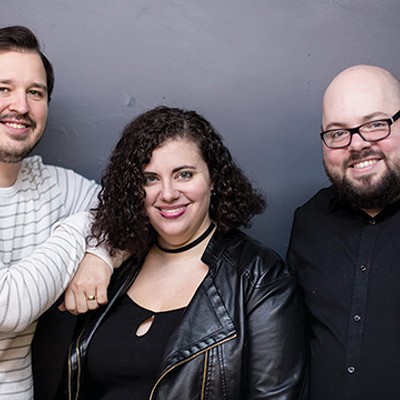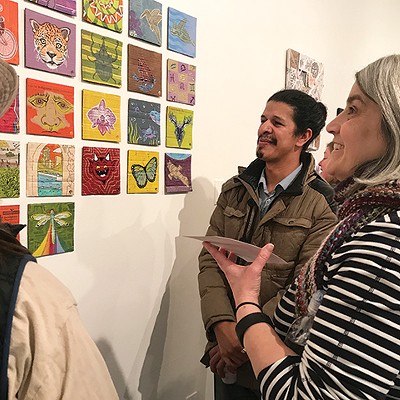With students and faculty hailing from 90 countries, perhaps it's no surprise that Carnegie Mellon University is a good venue to practice a foreign tongue. According to CMU, fully one-quarter of its students are from outside the United States.
But now it's official: CP readers voted the Squirrel Hill campus as the best place to not speak English.
"You can see so many languages. From my dorm [in Morewood Gardens] to [the University Center], you can hear at least three languages," says Ishita Gaur, a first-year student and architecture major from New Delhi. Gaur says at first she was blown away at how commonly Hindi is spoken on campus. But Gaur says that when the situation requires, she would switch between English and Hindi in order to include everybody in a conversation.
"We're identifying ourselves as a global university," says Susan Polansky, associate head of the university's department of modern languages. "That's really the case."
Along with India, the nations of China, Japan, Korea, Turkey and our multilingual neighbor, Canada, supply the most international students to the campus. The profusion of Asian tongues is no surprise: Three out of every four international students are from Asia.
Despite the school's status as a veritable Tower of Babel, there is no academic requirement to learn a language other than English. Unlike many other top-ranking colleges, CMU doesn't have a foreign-language requirement -- though Polansky says students often take language courses voluntarily. Nearly half of the class of 2005 studied a language during their four years on campus, she says -- an impressive rate considering the national average hovers at a dismal 12 percent. The most popular language courses on campus are Chinese, Japanese and Spanish.
"Our students are very motivated," adds Polansky. "They see the valued-added of combining a language with whatever they're studying."
Whatever the pragmatic desire to conquer the globalizing economy, practicing a foreign language takes opportunity and a certain comfort level -- both hard things to come by in a linguistically monotonous city like Pittsburgh.
Opportunities no doubt abound on CMU's campus. Outside the classroom, currently there are two conversation groups for extracurricular practice in French and Spanish. La Table Française meets every Wednesday at 7 p.m. at the alumni lounge in the University Center; the event promises "real French speakers," says the flyer posted on the entrance to the department of modern language at Baker Hall. The Spanish group, Tertulias de Hable Hispana, gathers every Tuesday and Friday at the Skibo coffee shop.
And some multilingual students there assured me that they never court a strange look or raised eyebrow whenever they break into foreign syllables. In fact, some say they draw solace from slipping into a foreign tongue every so often.
Another first-year student, Chanmi Yang -- who grew up bilingual while shuttling between Korea and New Hampshire -- says she often discusses homework in Korean.
"It's more comfortable for a lot of us," says Yang.
But for her friend Andrew Seo, the choice to speak Korean is made a bit more judiciously.
"If there is a topic that requires Korean, or if you're talking about Korean movies, actors or actresses, it'd be awkward to speak English," says Seo, an economics major from Irvine, Calif., who didn't grow up learning to speak his parents' native tongue. But he decided to learn it once he got old enough.
"Once you get older," says Seo, "I start to appreciate being able to speak a second language."


















